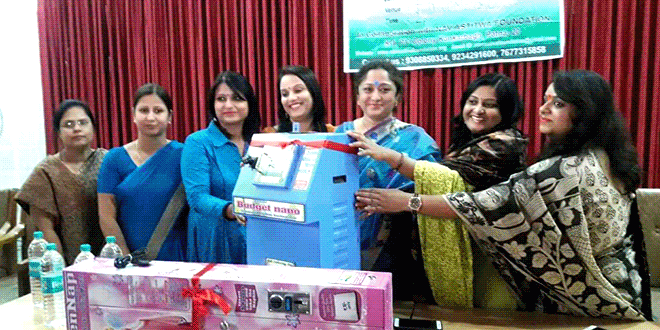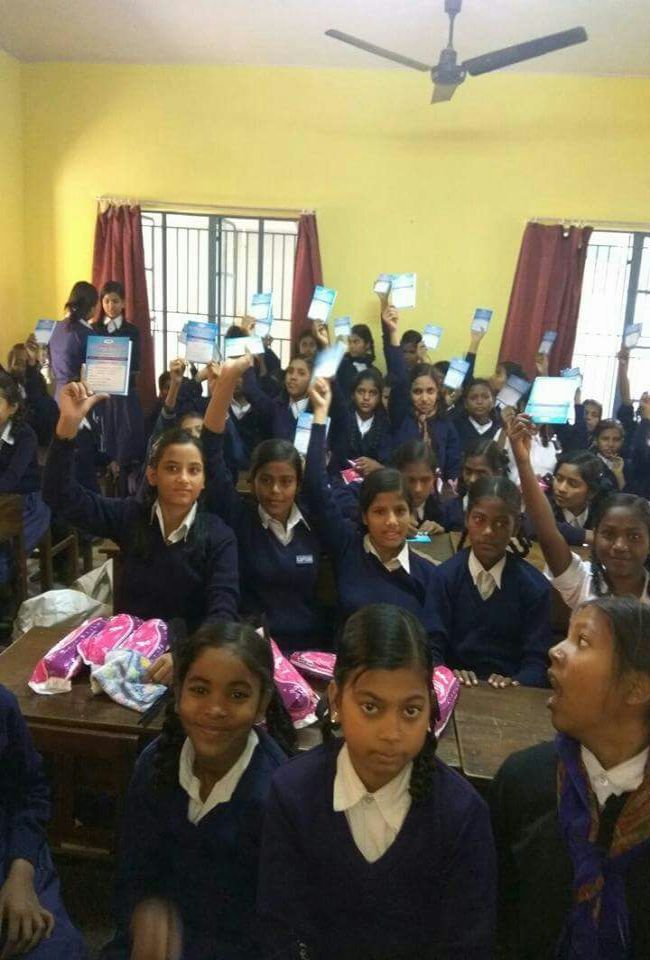New Delhi: “In 2012, I along with two of my friends, Pallavi Sinha and Dr Archana Kumari started an NGO Nav Astitwa Foundation. We were focused to raise the level of basic literacy among girls of Bihar. But while working in the same direction, we came across another major problem, i.e, menstrual health and hygiene and it is then that we shifted from literacy to health and hygiene and made it our mission to make every woman and girl of Bihar use a sanitary napkin”, recalls Amrita Singh, co-founder of Nav Astitwa Foundation, while speaking to NDTV.
As soon as the trio recognised a problem, they started working towards it. They collaborated with Red Cross Society and started counselling sessions and distributing sanitary napkins for free. The team including volunteers from Red Cross Society used to visit different villages, schools, colleges to make women and girls understand the importance of menstrual hygiene and in the end they used to distribute sanitary napkins to them.
Also Read: This Software Professional From US Returned To India To Create Awareness About Menstrual Hygiene
Like in school we take an exam to test our knowledge, we did a survey to check how effective our campaign was. In the year 2014, we did a survey and found that when something is distributed for free, people take it for granted. There was no change in the behavior of women and they were least concerned about their health, says Amrita.
The reality check didn’t shake their resolve. It made them stronger and determined towards the cause. Devoted, the trio relaunched their project in 2014 with the theme ‘Swachh Betiyan, Swachh Samaj’, this time, without any collaboration.
As part of the initiative, they launched PadBank for the first time in Bihar in six different regions on July 29, 2017 and issued passbook to women and girls. Just like a regular bank, PadBank issues passbook to its users to ensure regular usage of sanitary napkins. By showing a passbook, women and girls can collect monthly stock of sanitary napkins at a cost of Rs. 20. The passbook is valid only for five years.
As of now, around 50 PadBank have been initiated in Bihar. Each and every PadBank has an incharge who issue sanitary napkins to other women and girls. The reason behind issuing a passbook is to make women use sanitary napkins regularly, tells Amrita.
Also Read: Busting Myths About Menstruation Redefined This Young Lady’s Mission In Life
Elaborating on the cost of sanitary napkins and how they made rural women spend Rs. 20 every month, Amrita says,
We procure directly from the manufacturers and we have told them that we need sanitary napkins in lakhs so we get it at a cheaper rate. For a monthly stock, a woman needs to pay as little as Rs. 20 and for that we ask them to save Rs. 1 daily for their health.
Nav Astitwa Foundation has issued 15 thousand passbooks, till date and aims to issue one lakh passbook by July 2018. The trio has managed to approach 25-30 thousand individuals. In addition to this, the team distributes sanitary napkins to women and girls who can’t afford it like girls at Blind School.
We take counselling sessions at different places and after the session, we demonstrate and educate on how to use sanitary napkin, how to dispose it and when to change it. We let women and girls question and clear their doubts, says Amrita.
Apart from initiating PadBank in Bihar, the organisation installed first sanitary napkin vending and disposal machine in J D Women’s college on November 27, 2017. Not only is this, the team will be installing a similar machine this year at Patna Airport on the occasion of International’s Women Day and at Patna Railway Junction on March 28.
For the procurement of sanitary napkins, the organisation accepts donation in both forms, i.e., sanitary napkins and monetary funding.
Our aim is to not just distribute sanitary napkins to the women and girls residing in Bihar. Our aim is to make them understand its importance, and its usage. In India, only 12 per cent of women use sanitary napkins, rest depend on unhygienic alternatives which often lead to numerous diseases. Our aim is to change this figure and make women adopt hygienic menstrual practices, signs off Amrita.




























